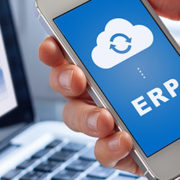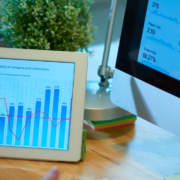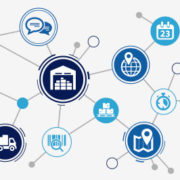Enabling a mobile workforce with cloud ERP
As mobile technology, innovative solutions, and advances in cloud computing continue to enhance business productivity. Many find themselves asking whether a physical office is even necessary for a successful business anymore. And as we’ve been forced to learn during these unprecedented times, the answer could very well be no.
According to the 2020 Enterprise Mobility Trends Report by Clearbridge Mobile, 42% of the global workforce and a staggering 75% of the total U.S. workforce will be comprised of mobile workers in 2020. With numbers like these, the ability to support remote working is going to be top of the list. This helps you keep a competitive edge all while attracting and retaining top talent.
Why your business needs cloud ERP software
If you don’t know what ERP software is, it can be hard to understand why you need it, much less why your business might need a cloud ERP platform. No matter the size of your business, there are multiple departments and areas working together every day. All of them rely on data from each other for each part of your business to operate successfully.
This is where ERP comes in. Each of these sectors might use different software in order to perform the processes they’re meant to. With ERP software, all of the information from the different software you might use is accessible from one central point. These can be easily shared between each other as well. This Investopedia video does a great job of explaining ERP as well.
By using cloud ERP software, you’re taking this easy accessibility one step further. Now anyone and anything can access the data they need at any time, no matter where they happen to be. Your New York office can share important data with your London office, and someone on a business trip in Hong Kong can access your cloud ERP whenever they need to.
The benefits of cloud ERP software
If you want your business to grow effectively, there is no real way around needing to invest in an ERP system. You might already have multiple systems doing a great job. However, consolidating all the info in Excel spreadsheets can only get you so far.
Because all of your data is always comprehensive, up to date, and easily accessible no matter the time or place, cloud ERP improves your reporting processes. And, you can usually create customized reports for individual users, so they’re only getting the data relevant to them.
ERP systems can be expensive to invest in. They also require complex infrastructure as well as a dedicated team to manage it. With cloud ERP, you’re getting all the benefits at a fraction of the cost. And very little of the maintenance burdens that come with them.
Implementing an ERP is a complex and challenging process. Once completed it improves collaboration and communication because of its centralized nature. It also reduces the time spent on mundane and repetitive tasks, improves data capture and entry, simplifies processes, and lowers admin costs.
And with a cloud ERP system, your business isn’t hindered in the event of a natural disaster or other emergencies. This includes lockdown measures being enforced in the face of a global pandemic. Even just because members of your team have to travel overseas for business reasons.
Businesses cannot escape the fact that the workforce dynamic is changing. And because of these changes, the expectations, needs, and demands of both their enterprise software and employees are changing. Thankfully there is a wealth of technology perfectly poised to support remote workers in every industry while helping organizations capitalize on the benefits of a mobile workforce.












